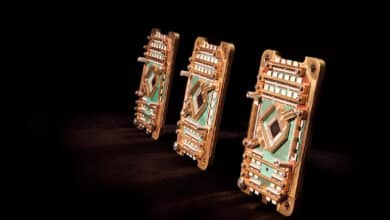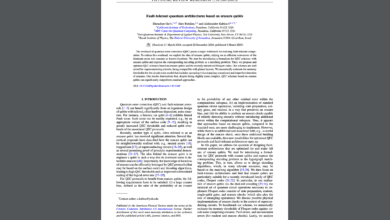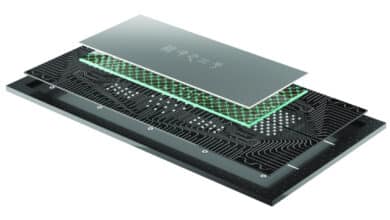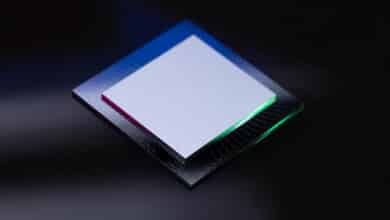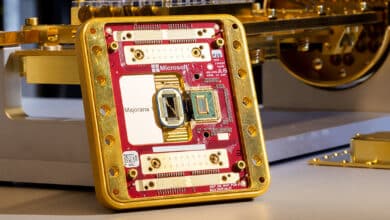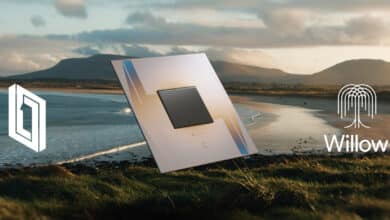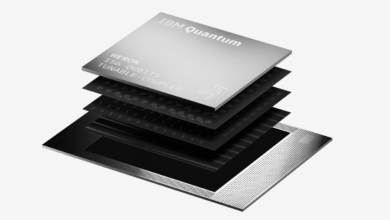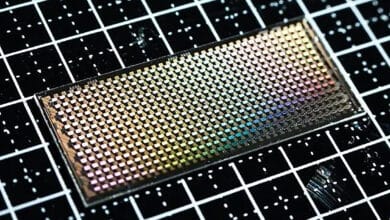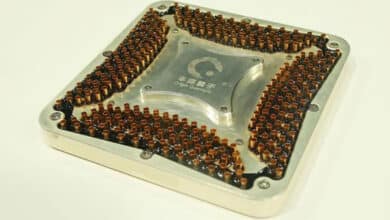Latest Quantum Research & Methods News
-
Mar- 2025 -13 MarchIndustry & Ecosystem News
D-Wave Claims Quantum Supremacy with Quantum Annealing
D-Wave Quantum Inc. has announced a breakthrough, claiming to achieve quantum computational advantage – even “quantum supremacy” – using its quantum annealing technology on a practical problem. In a peer-reviewed study published in Science on March 12, 2025, D-Wave’s researchers report that their 5,000+ qubit Advantage2 prototype quantum annealer outperformed one of the world’s most powerful supercomputers (Oak Ridge National…
Read More » -
6 MarchResearch News
Fault-Tolerant Quantum Computing (FTQC) with Erasure Qubits
Fault-tolerant quantum architectures based on erasure qubits represent an exciting development in quantum engineering. They blend clever hardware design with advanced error-correcting codes to tackle the Achilles’ heel of quantum computers: noise. The research by Gu, Retzker, and Kubica shows that by making qubits a bit smarter about their own errors, we can significantly lower the overhead on the road…
Read More » -
4 MarchIndustry & Ecosystem News
Zuchongzhi 3.0 Quantum Chip: Technical Analysis and Implications
China’s quantum computing powerhouse, the Zuchongzhi research teams, just unveiled Zuchongzhi 3.0, a new superconducting quantum processor with 105 qubits, marking a major leap in quantum computing performance. Announced in March 2025 by a University of Science and Technology of China (USTC) team led by Pan Jianwei, Zhu Xiaobo, and Peng Chengzhi, this prototype boasts unprecedented processing speed – reportedly…
Read More » -
Feb- 2025 -28 FebruaryIndustry & Ecosystem News
AWS Announces Ocelot Chip for Ultra-Reliable Qubits
Amazon Web Services (AWS) has officially unveiled Ocelot, its first in-house quantum computing chip, marking a significant milestone in the company’s quantum ambitions. Announced on February 27, 2025, Ocelot is a prototype processor designed from the ground up to tackle quantum error correction in a more resource-efficient way. AWS claims the new chip can reduce the overhead (and thus cost)…
Read More » -
23 FebruaryIndustry & Ecosystem News
Microsoft’s Majorana-Based Quantum Chip – Beyond the Hype
In February 2025, Microsoft unveiled “Majorana 1,” an eight-qubit quantum chip built on a topological qubit architecture – a first-of-its-kind design leveraging exotic Majorana quasiparticles. This chip uses a new material called a “topoconductor” (a specially engineered topological superconductor) made from indium arsenide and aluminum, which can host and control Majorana zero modes (MZMs) to serve as qubits. Microsoft’s announcement…
Read More » -
Jan- 2025 -7 JanuaryResearch News
First Successful Factorization of RSA-2048 by Quantum Computer? Not Even Close!
Chinese researchers published “A First Successful Factorization of RSA-2048 Integer by D-Wave Quantum Computer.” To get straight to the point - the title is misleading. The authors did NOT factor a general RSA-2048 key (as used in real cryptography); instead, they factored a specially structured 2048-bit semiprime chosen to be extremely easy.
Read More » -
Dec- 2024 -11 DecemberIndustry & Ecosystem News
Google Announces Willow Quantum Chip
Google has unveiled a new quantum processor named “Willow”, marking a major milestone in the race toward practical quantum computing. The 105-qubit Willow chip demonstrates two breakthroughs that have long eluded researchers: it dramatically reduces error rates as qubit count scales up, and it completed a computational task in minutes that would take a classical supercomputer longer than the age…
Read More » -
Nov- 2024 -20 NovemberIndustry & Ecosystem News
IBM Unveils 156-Qubit ‘Heron R2’ Quantum Processor
IBM has announced a new 156-qubit quantum processor called Heron R2, marking a significant upgrade to its quantum computing hardware portfolio. The Heron R2 chip is the second-generation follow-up to IBM’s 133-qubit “Heron” processor introduced in late 2023. Building on its predecessor, the Heron R2 not only adds more qubits but also delivers major improvements in qubit coherence, gate fidelity,…
Read More » -
Jun- 2024 -26 JuneResearch News
RSA-2048 Within Reach of 1730 Qubits. Or is it?
The paper’s main claim is striking: by using approximate residue arithmetic and other optimizations, one can factor an RSA-2048 number with around 1730 logical qubits – dramatically down from the ~4000–6000 logical qubits required by earlier methods. (See one of my recent posts "4,099 Qubits: The Myth and Reality of Breaking RSA-2048 with Quantum Computers" for more info on how…
Read More » -
May- 2024 -11 MayIndustry & Ecosystem News
China Unveils Xiaohong: A 504-Qubit Processor
Chinese researchers have announced “Xiaohong”, a new superconducting quantum processor boasting 504 qubits – the largest such chip ever built in China. This record-breaking processor, developed by the CAS Center for Excellence in Quantum Information and Quantum Physics in collaboration with industry partner QuantumCTek, vaults China into the upper echelon of quantum hardware achievements. Xiaohong’s qubit count surpasses previous domestic…
Read More » -
7 MayResearch News
Hole-Spin Qubits Demonstrated in Silicon FinFETs
In a significant quantum computing breakthrough, researchers from the University of Basel and IBM Research–Zurich have achieved a controlled interaction between two quantum bits inside a standard silicon transistor. The team’s new paper “Anisotropic exchange interaction of two hole-spin qubits” in Nature Physics reports that they realized high-speed, high-fidelity operations between hole-spin qubits implemented in a fin field-effect transistor (FinFET)…
Read More » -
Apr- 2024 -20 AprilResearch News
Major Leap for Quantum Internet: First Critical Connection
London, April 2024 – In a groundbreaking advancement for the future of global communication, researchers from Imperial College London and their partners at the Universities of Southampton, Stuttgart, and Würzburg have established a core link necessary for the quantum internet, enabling, for the first time, the production, storage, and retrieval of quantum information in a single system. According to the…
Read More » -
4 AprilIndustry & Ecosystem News
Microsoft Announces Record Breaking Logical Qubit Results
Microsoft and Quantinuum have announced a major quantum computing breakthrough: the creation of the most reliable logical qubits on record, with error rates 800 times lower than those of physical qubits. In an achievement unveiled on April 3, 2024, the teams reported running over 14,000 quantum circuit trials without a single uncorrected error. This accomplishment was made possible by combining…
Read More » -
Feb- 2024 -10 FebruaryResearch News
Breakthrough in Quantum Error Correction by Nord Quantique
Sherbrooke, Canada (February 8, 2024) – Nord Quantique, a Canadian quantum computing startup, has announced a breakthrough in quantum error correction using the Gottesman–Kitaev–Preskill (GKP) bosonic code. The company demonstrated, for the first time, an increase of 14% in the coherence time of a single superconducting qubit by correcting its errors without adding any extra physical qubits. This hardware-efficient feat…
Read More » -
Jan- 2024 -15 JanuaryIndustry & Ecosystem News
Origin Quantum’s Wukong: China’s 72-Qubit Processor
In a major milestone for China’s quantum tech ambitions, Hefei-based startup Origin Quantum has unveiled “Wukong,” a 72-qubit superconducting quantum processor. Launched on January 6, 2024, this third-generation quantum computer is China’s first home-grown superconducting quantum computer and the most advanced of its kind in the country. The system – named after the Monkey King Sun Wukong (famed for “72…
Read More »
